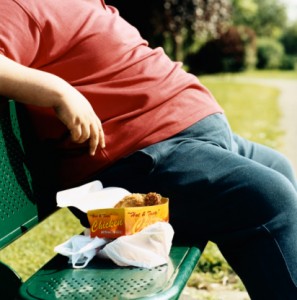 Obesity is by definition excess of fat storage rather than weight. Men with more than 25% of total body fat and women with more than 30% total body fat are considered obese.
Obesity is by definition excess of fat storage rather than weight. Men with more than 25% of total body fat and women with more than 30% total body fat are considered obese.
There are many different ways to classify obesity. In accordance with endocrine and pathogen of the metabolic disease, obesity can be divided into simple obesity, secondary obesity and drug-induced obesity. Obesity, a growing health problem, is the door to a lot of illness and life threatening conditions that can make your life a living hell. Dr Ramen Goel, Head, Bariatric Surgery, Nova Specialty Surgery, Tardeo Mumbai, explains 10 reasons why obesity is bad for your health.
Type 2 diabetes
Obesity is one of the major causes of type 2 diabetes. Studies suggest that higher than normal body weight greatly increases the risk of getting diabetes. Uncontrolled diabetes in return leads to all serious complications such as high BP, heart attacks, brain strokes, blindness, kidney failures and nerve damages with amputations.
Heart attack
Obesity and overweight are linked to several factors that increase one's risk for cardiovascular disease (heart attack). Abdominal obesity or pot belly is said to be one of the major risk factors that can lead to heart ailments.
High blood pressure
Weight gain and hypertension are interconnected as increased weight raises the risk of developing high blood pressure. Weight reduction can actually help normalize the blood pressure. No wonder doctors recommend those suffering from hypertension to exercise and maintain their body weight.
Obstructive sleep apnea
Obesity results in obstructive sleep apnea where the person is not able to sleep well and snores, while remaining drowsy during the day. It is a respiratory problem in which breathing is stopped intermittently during sleep. Besides problem of sleep this results in high BP, heart failure etc.
Gout
An obese person is four times as likely to develop gout- a medical problem that affects joints, as someone with a normal body weight. In gout people have increased uric acid levels which results in painful, red and inflamed joints. With weight loss, the uric acid levels in the blood can decrease.
High cholesterol
One of the major risks in being overweight is the development of high cholesterol. Obesity increases the levels of triglycerides and bad cholesterol (LDL) in the body. Obese people generally have low levels of good cholesterol (HDL). High level of LDL and low level of HDL are major causes of atherosclerosis which results in narrowing of blood vessels leading to heart attack.
GERD
Recent research suggests that obesity is driving rise in people suffering from acid reflux. Obesity increases reflux because abdominal fat puts pressure on the ring of muscle at the bottom of the oesophagus - the 10-inch tube connecting the throat to the stomach - which normally prevents stomach acid from flowing back. The condition leads to heartburn.
Osteoarthritis
Being overweight puts extra stress on the joints, such as the knees, and consequently is a risk factor for developing osteoarthritis. Increased body weight puts more stress on joint surfaces causing damage.
Cancer
Medical research suggests that obesity plays an important role in cancer and that the lifetime risk of cancers is more among obese individuals. Obese people have higher chances of getting bowel, breast and esophageal cancers.
Heart failure
Worldwide research suggests that increased body-mass index is associated with an increased risk of heart failure.




Comments
Add new comment